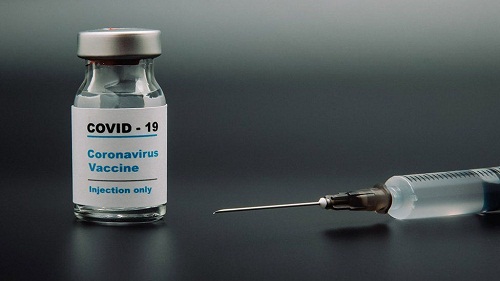Robin Iqbal
In April 2019 a scaremongering video of children becoming unconscious after being administered polio vaccine in Badaber, Peshawer, appeared on social media nearly bringing the entire national immunization program to a grinding halt. Even more unnerving is to note that the perpetrator was a local school teacher. The video is a clear manifestation of the prevailing mindset of masses that greatly swaddles the success of such campaigns in our country.
The last mile for the vaccine i.e. from centralized distribution centres to sub district-level clinics, and finally to the patients, will certainly be strewn with myriad of challenges. Before the vaccine fights the deadly virus in Pakistan, it will have to face the people first.
Conspiracy theories against the existence of the coronavirus are still morbidly rampant in the country including the educated class. One doesn’t have to look far to hear notions like it being a manmade virus, designed to keep a check on global population –the government is killing its own people in the name of coronavirus as it brings foreign aid, they are denying the very existence of the virus altogether, etc. – the list goes on. Our public is by and large equally skeptic about the vaccine.
The likely impediments to the deployment are going to be, as is in the case of polio vaccine, firstly the general distrust against the vaccine. Many a time such programs have been labeled as being un-Islamic (haram) and designed to make the population sterile. Secondly, since the deployment of vaccine will inevitably require government partnering up with World Health Organization (WHO) and other such agencies, it is quite likely to be viewed as a foreign program, which implies an unsettling undercurrent of mistrust.
Thirdly, the inter-district or inter-city movement of people, for various reasons, might leave a certain number of people remaining unimmunized, willfully or otherwise. Additionally, the marginalized population in the country like the transgender and slum dwellers are likely to evade the authorities’ radar thus continuing the overhang of virus’ spread. Fourthly, the risk of substandard or altogether fake vaccine appearing in the market, a phenomenon not so novel in our part of the world, could potentially jeopardize the whole program. Circulation of any such vaccine could further fuel the underlying distrust and ultimately cost lives. The requisite technical wherewithal for deployment to the far-flung areas of the country like cold chain storages, etc., will prove to be a significant challenge in itself.
Equitable distribution of vaccine between provinces by federal authorities, or lack thereof, has a potential to give the situation a political angle. Furthermore, managerial and coordination issues at the level of city or district governments like shortage of staff, lack of inter-departmental liaison, etc., could also pose a serious impediment to the coronavirus vaccine deployment.
Lastly, post-immunization program, if not managed properly, could lead to a host of problems. Unsafe disposal of used syringes may lead to spread of other degenerative diseases like HIV, Hepatitis, etc. Environmental pollution may rise as a result of used pharmaceutical waste; an area in which our country is lagging behind at global level.
Therefore, sensitization of public will be a keystone of the entire immunization program; without public getting onboard, the policy is not likely to yield great dividends. Rigorous campaigning for education of masses at grass root level, in both print and electronic media, will be required in this regard. Awareness on programs like Covax and initiatives on similar lines as ‘Team Halo’ could prove to be highly beneficial.
Additionally, local clergy and tribal chieftains hold the power of swaying public opinion particularly in the rural areas. Making them an instrument of government’s policy, expounding the benefits of vaccination will play a key role. Equitable distribution of drugs between provinces based on headcount and priority of immunization will preclude any chances of political turmoil.
It will also be incredibly important to conduct the immunization program across the length and breadth of the country simultaneously. A robust week-long project, on the lines of general elections, will have to be conducted. A government directive, ensuring that both public and private sectors make their employs available for the vaccination must be issued. The government ought to update its database on the transgender and other marginalized members of the society lest they slip through the cracks.
Also, mass transit between districts and provinces will have to be halted for this period, in order to ensure that the entire population undergoes the program. The Drug Regulatory Authority of Pakistan (DRAP) will have to proactively work in order to keep a check on counterfeit vaccine. A helpline for easy reporting of such infractions should be established by DRAP. In order to avoid friction between managerial echelons, district level teams comprising representatives of public health experts, district health organizations, district management group, partnering agencies like WHO, etc., working under the auspices of Army will have to be formulated for a wholesome response. The inclusion of Army will not only help to overcome the shortfall in manpower faced by the district administration but will also lend credence to the efficacy of the vaccine itself.
Facilities for safe disposal of a monumentally large number of used syringes and associated paraphernalia will also have to be looked into. All in all, the light at the end of the tunnel has started to become visible. With so much already invested in procurement of the vaccine, both the society and government will have to play their part of role to make the campaign a success. The government would be well counseled to anticipate the challenges likely to be encountered beforehand, and start the remedial measures now.
(The writer is a freelance columnist)

















